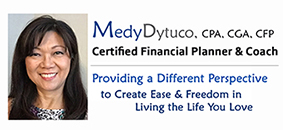Has it been a while since you last looked at your insurance portfolio?
Are you a little vague in your recollection of all the coverage you have and why you have it?
Are you uncertain as to whether or not your portfolio reflects your current situation?
Just like going to the dentist for regular checkups is a necessary evil, reviewing your financial plan and products on a regular basis is also recommended. Circumstances can change over time and making sure your protection is keeping pace is a necessary exercise to make sure you’re not surprised at a time when you need this protection the most.
A comprehensive audit should review the following:
- Is the total death benefit of your life insurance appropriate to your current needs? A current capital needs analysis can help to determine this.
- If your current coverage is renewable & convertible term insurance should the policy be re-written before it renews at a substantial increase? Premiums for new coverage can be significantly lower than the renewal premium of an existing policy and the conversion period ends at a certain age (e.g. age 55, 60, etc.)
- Is your need for life insurance permanent (e.g. for final expenses)? If that is the case, you should ensure you have at least some of your needs covered by a permanent plan.
- Will your premium increase or coverage decrease? Even with permanent policies, premiums can increase, especially with a yearly renewing cost of insurance (often seen as YRT or ART), which can get significantly more expensive as the insured gets older and may render your premiums unaffordable later in life.
- Do you have insurance to cover your mortgage? If yes, does it pay residual benefits to your family instead of only the bank? Does it cover your whole mortgage period or will you have to renew at a higher premium before your mortgage is paid off (e.g. after 10 or 20 years)? Will it cover your mortgage payments in case of disability?
- Is your disability protection in place consistent with your current income? Does your group coverage impact your personal plan? Does your work disability insurance have a lower limit than you’re allowed?
- Are the beneficiary designations still valid for your current situation? Has your relationship changed with your spouse or family that may require changing the beneficiary or ownership of the current policy? Do you have appropriate contingent or trustee beneficiaries assigned? Have you set up beneficiaries to protect your children’s inheritance if they go through relationship changes?
- Do you have a joint policy that can be split? Is it appropriate to split your joint policy into individual policies, now that your children are older, so each person has lifetime coverage?
- Do you have child or other riders that need to be converted? Does your policy have riders (add-ons) that end at a certain age or after a certain time?
- Do you have a Critical Illness plan with a return of premium rider? What are the terms and age limits for the return of premium?
- Does your Critical Illness Plan have a loss of independence or long term care rider? If so, does it pay a lump-sum for all illnesses or a minimum monthly allowance for long-term care?
In addition, the following are important to note:
- If your policy is a Universal Life policy with cash value:
- Are the investment options still appropriate to market conditions and/or your risk tolerance?
- How does the cash value compare to other plans available?
- Does it have an option to have it paid up early (e.g.at 20 years or age 65)?
- Is the cash value adequate for a collateral loan (e.g. for a tax-free retirement-income-supplement or mortgage downpayment)?
- If the policy is a Whole Life policy:
- Are the dividends adequate to now fund the premium should you wish to take a premium holiday?
- Can the dividend option be changed to savings, paid up addition (for increased coverage) or cash payment?
- If your policy was assigned to a lender as collateral for a loan and that loan has been repaid has the assignment has been removed?
- Does mortgage insurance residual benefit pay to you or all to the bank?
- If you have you stopped smoking could you qualify to have the premiums reduced to those of a non-smoker?
- If your policy was issued with a substandard extra premium and your health has improved when can you qualify to have the rating removed?
- If your policy was rated as a result of participation in hazardous activities, e.g. flying, mountain climbing, heli-skiing this rating when can that be removed if you no longer are active in these activities?
If the current policy is for business purposes the following should also be reviewed:
- If the policy was to fund a Shareholders’ Agreement or Partnership Agreement, does the amount and type of coverage still satisfy the terms of the agreement?
- Are the ownership and beneficiary provisions of the policy still valid for tax-free flow through of benefits through the Capital Dividend Account?
- Does the policy cover key personnel for premature death as well as for major illness?
- Do you have something to cover your business overhead expenses to “keep the lights on” and the business going if you or other key personnel are unable to work?
Reviewing your coverage on a regular basis is recommended to make sure you’re properly covered and you’re not overpaying for coverage that is no longer appropriate for your situation. So call me to arrange a time for an overall review of all your plans, including those you have individually, at work or with a group.
As always, please feel free to use the social sharing buttons below to forward this article to a friend, family member or co-worker who might find this information of value.
For a printer friendly version of the checklist, click: DytucoFinancialServices-Ins-review-checklist


